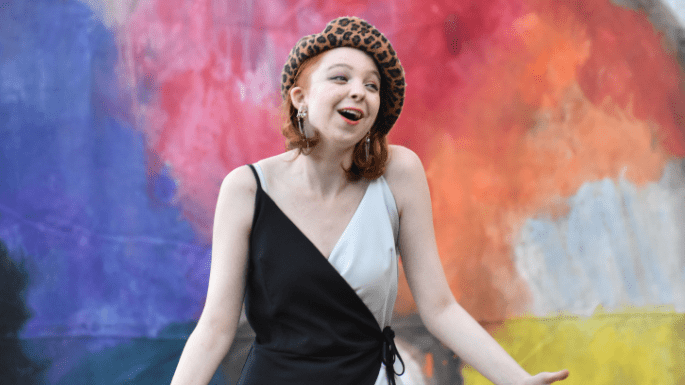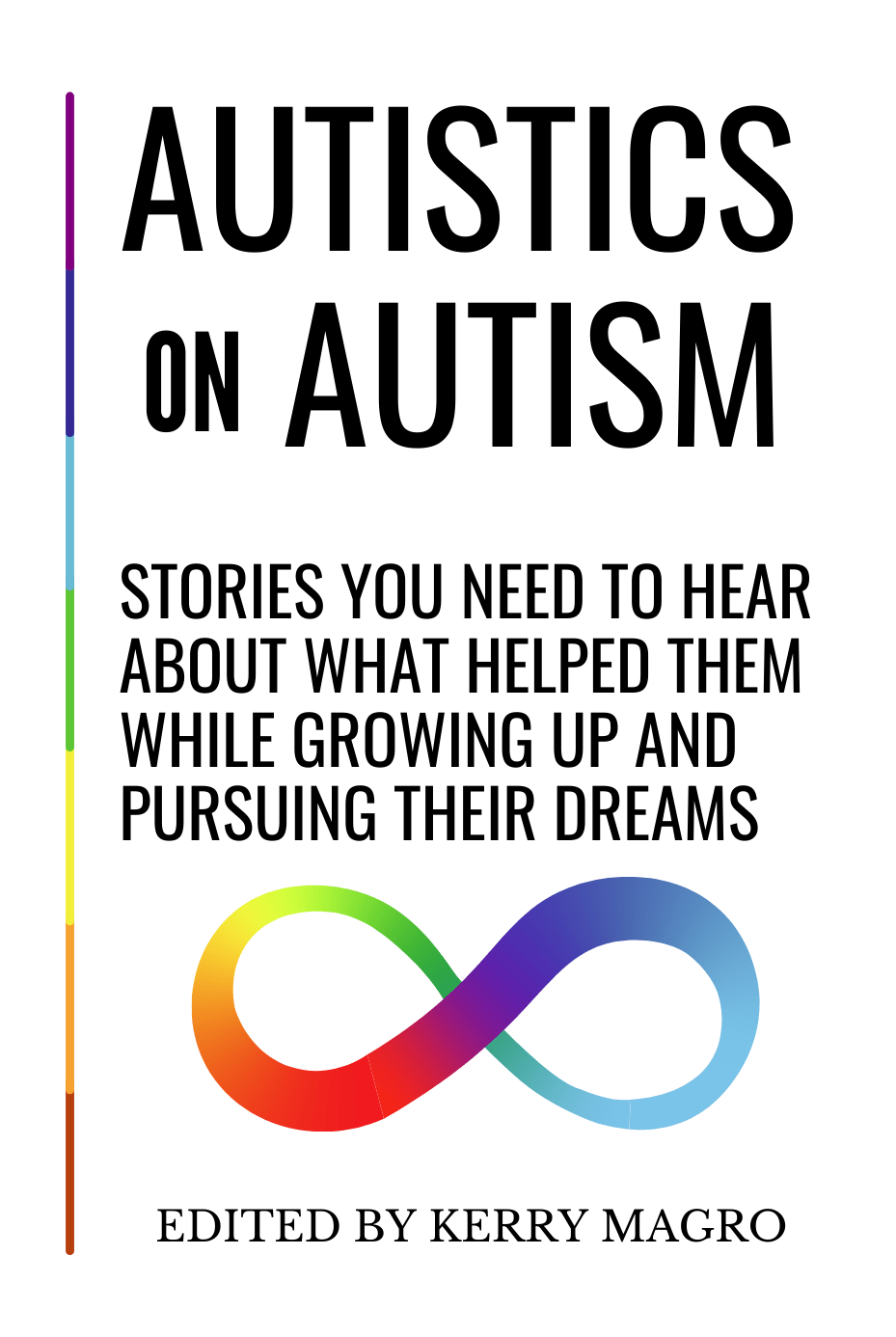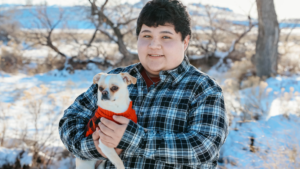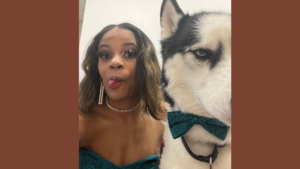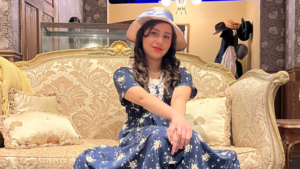This guest post is by Fiona Garner, a young woman with autism who attends Reinhardt University. Fiona is applying for the Spring 2023 Making a Difference Autism Scholarship via the nonprofit KFM Making a Difference started by me, Kerry Magro. I was nonverbal till 2.5 and diagnosed with autism at 4, and you can read more about my organization here. Autistics on Autism: Stories You Need to Hear About What Helped Them While Growing Up and Pursuing Their Dreams, our nonprofit’s new book, was released on March 29, 2022, on Amazon here for our community to enjoy featuring the stories of 100 autistic adults.
My name is Fiona Garner, and I am twenty-two years old. Since the day I received my autism diagnosis at 15, I have been an avid advocate and educator on ASD and rights for the neurodivergent community. I am a senior Vocal Performance major going into just completing my fourth year. Next year I graduate. These past four years my mother has been driving me to school, but next year I will finally be able to live on campus.
Neurodivergence, and autism, in particular, is a different way of seeing the world. Autistic people operate at a different processing speed. Some features of autism can be not understanding (and not conforming to) societal norms, not being able to understand when your body needs to eat, struggling to interact in groups and engage in small talk, and being more dependent on your guardians than societal expectations allow. Sensory issues can range from “he cries at the refrigerator” to “she doesn’t look autistic.” You do not even know you are having sensory issues because the world is so busy and there is so much everything. Seeing things in black/white and right/wrong is a big thing. This can lead to low self-esteem and being ostracized by peers because they sense something different. My autism makes me extremely passionate and dedicated. Sometimes I am unaware of when other people are not interested in the same things that I am. Some more areas that are common autistic traits are being judgmental, being tunnel-visioned, not making the right facial expressions, being too expressive, and not being aware of your surroundings. Stimming is a beautiful way to stimulate the brain and release energy, and every person on the spectrum has unique stims.
My nonstop motivation to do the things that I do is connected to my autism too. There are so many times that I could have given up because things are hard for me. Getting used to the unpredictability of my brain in the context of wanting to learn and excel. I hyper-fixate on doing well and understanding and making connections. It is so hard to find differences between who I am and what my autism is.
I am a female on the spectrum, and I’m very extroverted. This combination is not typical for someone on the spectrum. I’m an adult, which is important because there is this infantilization as if autism is something that someone just grows out of. There are more neurodivergent people than you could know. You don’t know what someone could be dealing with mentally in all forms if they are experiencing neurodivergence. Visibility and representation are important, and I am an opera singer. Also, we’re not robots, and women are undiagnosed and misdiagnosed.
Even though I am excited to be living on campus next year, I am also heartbroken because those that I have formed the deepest connections with are graduating. We have been together since freshman year and most of them feel more like family than classmates. Because of autism, I am having to stay a fifth year. I am happy for my friends, but as I watch everyone move on without me, I feel like I am being left behind. This class is incredibly special. Judah is my closest friend. She has been my rock these past four years. I would not have gotten through Music Theory or Aural Skills without her help. I have never had a friend as supportive as Judah. She has painted portraits of me and has even written me a song. Her senior showcase is a love letter to our friendship and to Neurodivergence.
This past year I have been working hard at preparing to be able to live on my own. I have been spending more time practicing driving and I have also improved in waking up on my own, which is my biggest barrier to independence. For the first time in my life, I feel ready to live on campus. I am so thankful to my amazing mother; my friends and the connections I have made at school I wouldn’t be able to take this big step without their love and support.
For me as an autistic, female, 22-year-old college student, my journey of growing independence has come through a journey of interdependence where I’ve helped others and they’ve helped me. Neurodivergence has a place in any discussion about diversity, I bring it up, and I tell people all the time that I’m on the spectrum, what my struggles are, and I’m an open book. I self-advocate and get notetakers, ask for my accommodations. I’m also very empathic. When people are upset, I know how to calm them, and show them what I receive when I need calming. So, when the opportunity arises, I can show people what they need to hear or what might be helpful and comforting (but true). I am completely honest about my feelings.
I asked Judah, my soul sister, who has helped me so much on my journey, to make a statement about our friendship and neurodiversity. Turns out, I must be making the difference I want to already. Judah said, “I’ve always been a person who treats people with respect regardless of whatever their background is, but I didn’t fully understand the complexity of Autism, ADHD, or other forms of neurodivergence until I met Fiona, nor did I realize that the vast majority of my own experiences line up closely to the traits of ADHD. It wasn’t until December of my junior year when I started doing intense research on myself and the condition. I kept it a secret for a few months before eventually opening up to friends who I knew were also neurodivergent, Fiona especially, to which all of them responded ‘That’s not a surprise!’ It finally felt like everything I experienced but did not have words for could finally be explained, thanks to Fiona.” The gifts and challenges I experience as an autistic woman have helped me empower others.
Follow my journey on Facebook, my Facebook Fan Page, Tiktok, Youtube & Instagram.
My name is Kerry Magro, a professional speaker and best-selling author who is also on the autism spectrum. I started the nonprofit KFM Making a Difference in 2011 to help students with autism receive scholarship aid to pursue post-secondary education. Help support me so I can continue to help students with autism go to college by making a tax-deductible donation to our nonprofit here.
Autistics on Autism: Stories You Need to Hear About What Helped Them While Growing Up and Pursuing Their Dreams was released on March 29, 2022 on Amazon here for our community to enjoy featuring the stories of 100 autistic adults. 100% of the proceeds from this book will go back to our nonprofit to support initiatives like our autism scholarship program. In addition, this autistic adult’s essay you just read will be featured in a future volume of this book as we plan on making this into a series of books on autistic adults.

